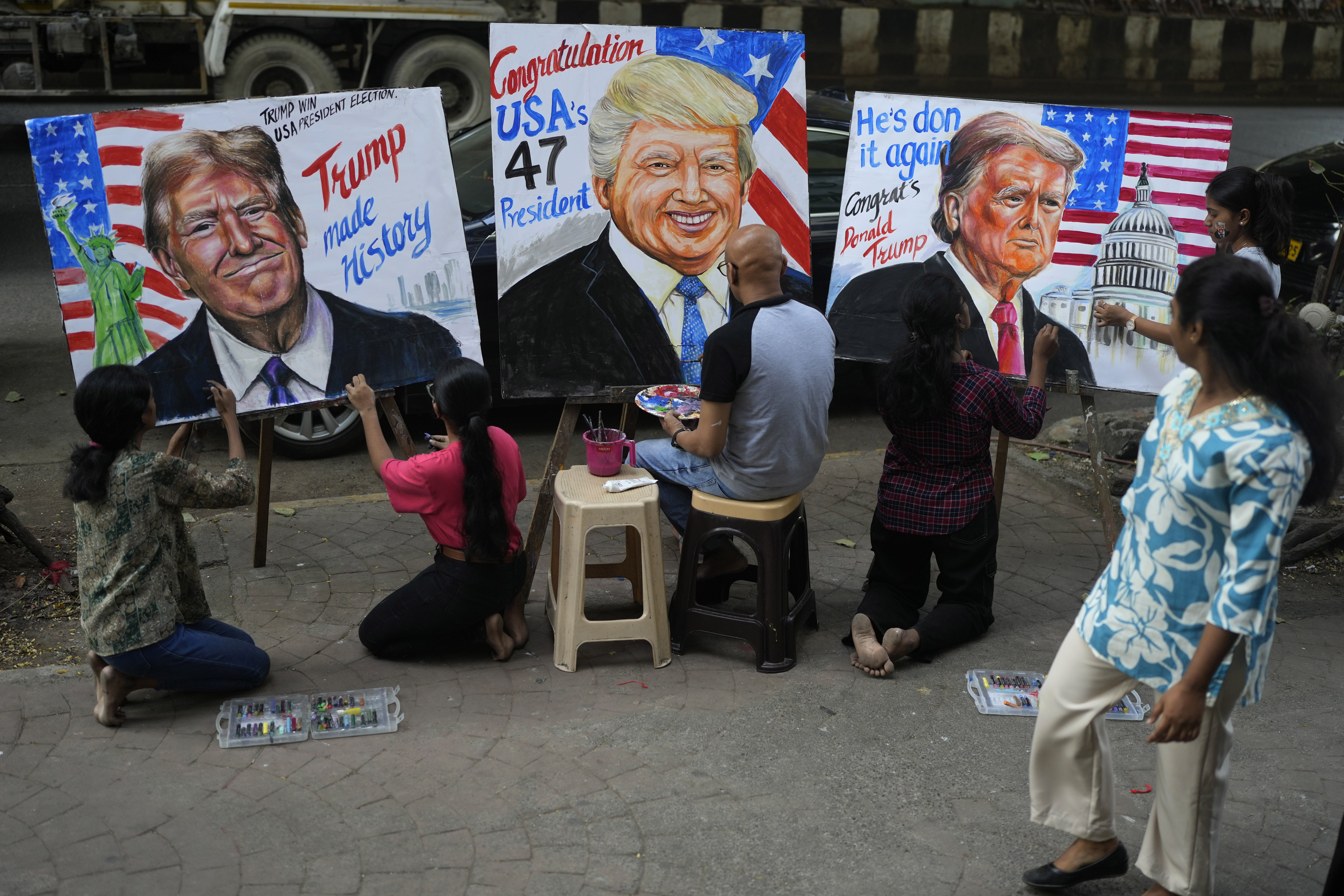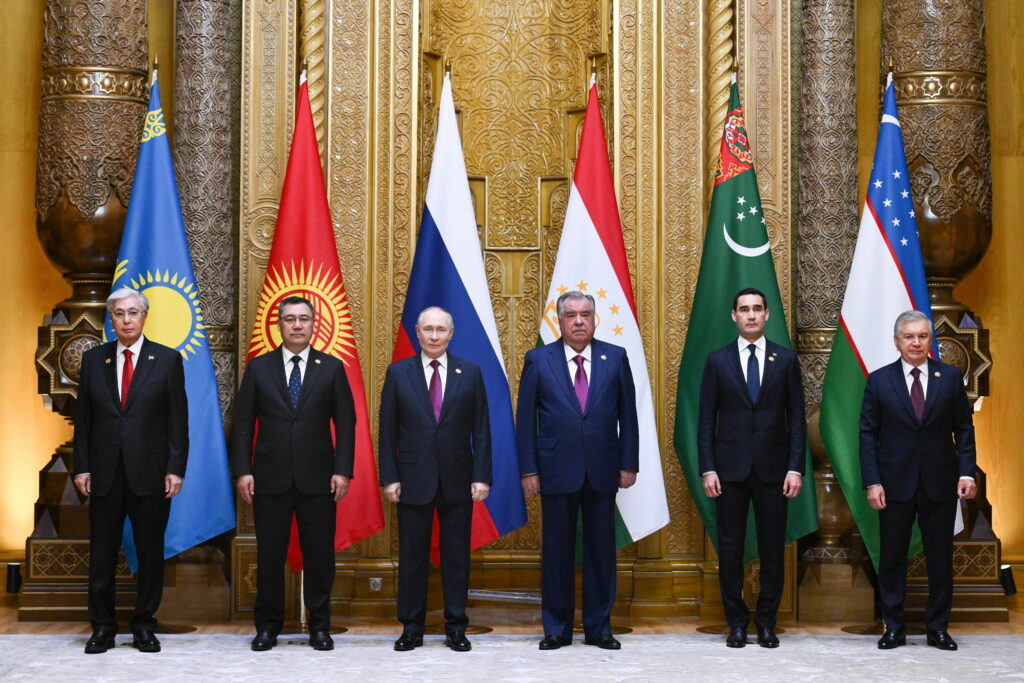Donald Trump will become the 47th President of the United States in January. His victory has predictably plunged the Euro-Atlantic region into a state of alarm. Of course, both the EU and Ukraine were preparing for Trump’s possible victory, but they were hoping for Kamala Harris to come to power, who would at least not reduce the support Ukraine received under Joe Biden. Trump is expected to be unpredictable and possibly radically scale back aid for Ukraine and seek to make a deal with Putin, seating him at the negotiating table. Unlike 2016 — when Russian propagandists wanted to parade around Moscow with US flags, and the Russian Duma drank champagne to Trump’s victory — Trump’s 2024 return to power leaves Moscow Moscow acting with caution. And there are many reasons for that.
Round One
Moscow greets each new US president with the hope that relations can be improved. But no US leader has ever been greeted with the optimism that Trump was greeted with in 2016. But already in 2017, Trump introduced new sanctions against Russia, which had a noticeable impact on Russian oil and gas projects. During Trump’s presidency, more than 40 rounds of sanctions were imposed on Russia. In between the introduction of new sanctions, Trump met and took pictures with Putin, made statements that made the entire American establishment feel embarrassed, and then returned to introducing additional sanctions. None of what Russia expected from Trump’s presidency happened. When Trump lost to Biden, Moscow was already hoping that with the new president it would be possible to improve relations or at least slightly improve the situation after the failure under Trump. And these were optimists — part of the Russian elites simply proceeded based on the assumption that Russia-US relations were spoiled and spoiled for a long time and it did not matter who would be the next leader of the United States. It should be noted that Trump’s first term coincided with the period when active military actions on the territory of Ukraine ceased, Minsk-2 had already been signed and during his rule, Moscow did nothing that could radically worsen already problematic relations between Russia and the West.
Preparing for a new meeting: Trump’s team
During the election campaign, Trump initially said that he would stop the war in Ukraine in 24 hours, then moved the deadline and promised to seat Putin and Zelensky at the negotiating table before his inauguration in the second half of January 2025. Trump talked a lot about ending aid to Ukraine, but at the same time stated that Putin’s demands — handing over to Russia the entire territory of Donetsk, Luhansk, Kherson and Zaporizhia regions — were unacceptable. The plan of future Vice President Vance does not add much clarity to Trump’s program. Vance, in essence, proposed that Russia and Ukraine stop at the current line of contact, making it a demilitarized zone; Ukraine is guaranteed not to join any alliances in exchange for security guarantees from Russia. Russia will not be obliged to pay reparations and will apparently receive some easing of sanctions. Vance’s ideas were met with an extremely negative reaction in Kyiv, and Moscow simply reiterated its demands to the West and Ukraine.
It is envisioned that Trump may issue an ultimatum to Moscow and Kyiv. Either Putin and Zelensky sit down at the negotiating table, or Trump will cut off all military aid to Kyiv to put pressure on Zelensky; and to put pressure on Moscow, on the contrary, he will threaten to significantly increase support for Ukraine with weapons, and radically increase economic pressure on Moscow, including hitting the most vulnerable spot — Russian income from the sale of oil and gas, by collapsing oil prices (in theory though). Incidentally, some Russian big businessmen are already expecting a collapse in oil prices.
In fact, if we exclude that Putin and Zelensky will want to immediately sit down for negotiations at Trump’s invitation, then we find ourselves in a situation of possible conflict escalation rather than resolution.
Preparing for a new meeting: Putin
In what state is Russia approaching Trump’s new presidency? Trump has repeatedly claimed that Moscow wants peace, and it cannot be achieved only because the US is ruled by Biden, who does not understand how to convince Putin (whom Trump supposedly understands well).
The Russian army is actively advancing in the Donbas and the Kharkov region; the Russian budget is drawn up based on the prospect of continuing the war for at least all of 2025; Moscow continues to actively recruit new soldiers at extremely high salaries; and the Russian economy, albeit with great problems, has adapted to the war and sanctions. According to the latest calculations, the Russian economy, given current trends, can successfully hold out until at least 2025−2026.
In other words, there are currently no objective prerequisites for Moscow to seek a compromise, to abandon the conquests that have already occurred on the ground, and even more so to agree to conditions that are significantly inferior to the officially declared goals of the «SVO». Russia’s goals, fully realized, are the de facto capitulation of Ukraine and the loss of its sovereignty. Moscow is not interested in the «German scenario», according to which part of Ukraine will remain with Russia — and the rest will be included in NATO. Moscow is not interested in a scenario in which it will not have the right to decide the main parameters of the further continuation of the existence of the Ukrainian state.
Round two
We can say with confidence that there will be no progress on the issue of resolving the war in Ukraine before Trump’s inauguration. This would be impossible even if both Kyiv and Moscow were generally ready to seek a compromise. This is not the case now.
If Trump really tries to play the ultimatum game, he may well receive an unequivocal refusal from Russia and an active continuation of military actions in Ukraine (including an increase in attacks on civilian infrastructure), as well as Russian operations in NATO countries. The United States still has more mechanisms for pressuring Russia — including collapsing oil prices and putting more pressure on EU countries that continue to buy Russian gas, India, which buys Russian oil, and a dozen countries that actively help Russia with parallel imports and bypassing sanctions. We saw examples of successful economic pressure during Trump’s first term.
But even if Trump wants to make unprecedented concessions to the Kremlin, we must not forget that the United States is not Russia, and it will be difficult for Trump to simply «surrender Ukraine» in the first months of his presidency. As well as we should not forget about the existence of the European Union, which is now gritting its teeth, preparing for great uncertainty. But we can note that the EU leaders do not yet have any desire to just give up.
President Trump will have many problems that he will want to deal with first and foremost, and it is quite possible that if he fails to reach an agreement with Russia quickly, he will hand this issue over to his foreign policy team, which will most likely not radically revise the policies of previous administrations. After all, if you track at least last 20 years of American policy, its Russia policy component has largely been consistent under both Democrats and Republicans. Hence the quiet apprehension at Trump’s victory in Moscow.










